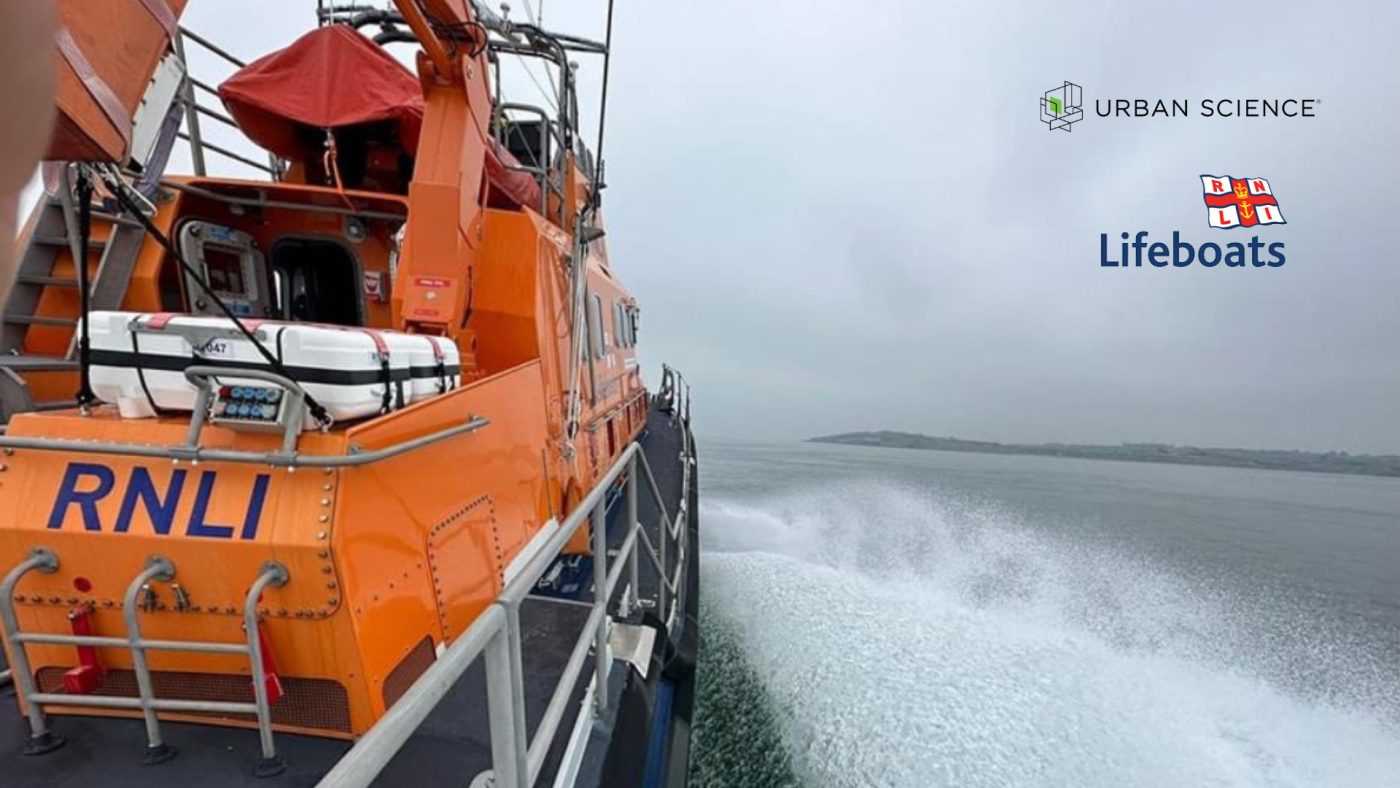Each day, we tap the power of our proven scientific processes and methodologies to help the world’s top automotive firms overcome previously unsolvable challenges and invent their futures – our industry’s next great chapters – as we have for nearly 50 years. And while we’re known as a leading global automotive consulting, data and technology firm, that’s only part of our story. We’re a global community of Urban Scientists who are deeply invested in our communities and seek out opportunities to make a positive impact in the places where we work and live.
Sometimes we better our communities through our skills and sometimes through our time, and when we combine the two, well, that’s where the magic happens. Two UK-based Urban Scientists recently exemplified this approach – embodying our #DoGreatThings and #InventTheFuture values – by assisting a local life-saving organization with science-driven data analysis to fuel recommendations to enhance and provide clarity and direction to the organization’s fundraising strategies, which are key to the foundation’s ability to fulfil its maritime mission.
Urban Scientists 保罗·迪拉莫尔, regional managing director, Europe, and Aaron Egan, senior consultant, connected with UK-based Royal National Lifeboat Institution (RNLI) through a former client who recognized Urban Science’s data expertise and ability to deliver cohesion and clarity in even the most ambiguous operating environments. Since 1824, RNLI’s purpose has been to save lives at sea and its ultimate vision is to end preventable loss of life at sea. As is the case with most nonprofits, the lifeblood of RNLI is the generosity of its supporters. This includes gifts and awards, as well as the work of volunteers and staff, who allow the organization to save lives at sea and continue to make strides toward ending preventable loss of life at sea.
Fundraising is a never-ending requirement for RNLI to continue its work in the short and long terms. And Mike Surridge, Yarmouth lifeboat station chair, RNLI, was looking at ways to obtain a greater understanding of fundraising on the Isle of Wight and how it could be mapped against the demography of its residents and visitors. With that in mind, Paul and Aaron volunteered to provide a proof of concept to calculate drive-time territories and projected charity donations at a postal sector level for the three lifeboat stations situated on the island, located off the south coast of the UK. A proof of concept is a demonstration or experiment designed to verify whether an idea, theory or product can be successfully implemented.
“My team and I regularly find ways to support our community through volunteering,” said Paul. “And as I learned more about the RNLI’s goals, I knew we had the data analysis skills and scientific approach needed to help make their fundraising strategies more efficient and effective, empowering its staff to focus on what’s most important: saving lives.”
RNLI’s main challenge was calculating an expected charitable donation figure for each geographic area it targets for fundraising efforts. Paul and Aaron used their deep knowledge of UK-specific data regulations and pulled in several public-domain data sets to help compare actual fundraising performance to projections and identify gaps and opportunities for improvement. By identifying nuances below surface level, such as considering how the Isle of Wight’s population grew, at least temporarily, through tourism during certain times of the year, they developed new science-driven approaches to position RNLI boost donations in the right places.
The data and scientific mapping Paul and Aaron developed provided previously unseen insights, revealing potential fundraising opportunities within the island’s tourism population and empowering the charity to pursue fundraising in the right geographic areas. This is important as finding – and marketing to – new fundraising sources isn’t simply a matter of putting more pounds in its purse, it’s a matter of survival. According to the latest figures from the RNLI, operating costs for the organization was 188 million pounds (212 million euros) in 2022. The figure accounts for lifesaving operations, lifeboats, property, equipment, lifeguard rescue, safety education and international drowning prevention. This means every dollar fundraised is important to RNLI’s mission to save lives at sea.
We salute Paul and Aaron for their skills-based volunteering efforts and for their commitment to #DoingGreatThings in the communities we call home.
Our company empowers our team members to volunteer through 12 paid volunteer hours each year. 点击这里 to learn more about our other community efforts.

